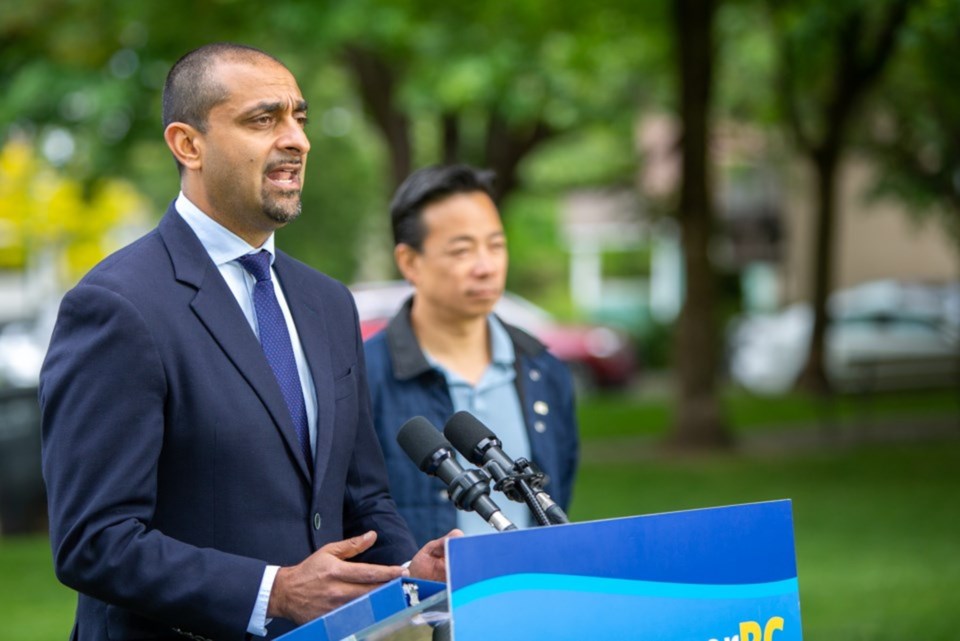Randy Helten says the BC NDP government’s so-called “naughty list” should not refer to the cities under pressure to build more housing.
Instead, the municipal government watchdog believes that term belongs to the government because it is keeping the list’s methodology secret.
Housing Minister Ravi Kahlon announced on May 31 that Abbotsford, Delta, Kamloops, District of North Vancouver, Oak Bay, Port Moody, District of Saanich, Vancouver, Victoria and West Vancouver would be required to increase housing supply. The five-year completion targets announced Sept. 26 range from 664 units for Oak Bay to 28,900 units for Vancouver.
The original government news release said that economists and experts developed an “empirical index” for setting the density targets and they chose the 10 municipalities by “using an objective and data-based process.”
A total of 47 municipalities were considered.
So CityHallWatch founder Helten started asking questions about the how and the who. When he didn’t get straight answers from the ministry’s communications office, he paid $10 to file an application under the freedom of information law and another $180 when bureaucrats estimated it would take an extra six hours to process.
Helten held his nose and paid. The government missed the late August deadline.
On Nov. 1, the same day the latest housing supply amendments were announced, Helten said he received two pages and a refund, because the government realized it didn’t need to charge so much.
Helten was frustrated to receive a chart under the headline “Selection Index Weights and Scores - Cohort 1” that had been censored.
The 10 municipalities had been chosen based on availability, affordability, urgent housing need and location. But their scores were all withheld under a section of the law that protects information about the substance of deliberations of cabinet, including advice, recommendations, policy considerations or draft legislation.
The section, however, should not apply when a decision has been made public and the decision has been implemented.
“The fact that they delayed so long, I often ask myself, is it incompetence or intentional that they're unable to give this information? In my mind, the conclusion is completely intentional, violating the FOI legislation,” Helten said. “The fact that they didn't provide information I asked for just undermines the entire justification for both pieces of legislation.”
Helten did, however, learn who got a sneak peek of the top 10 list.
The other document shows that the week before the announcement, on May 25, staff from Kahlon’s office and officials in the ministry held a “stakeholder technical briefing” on the municipal selection index with representatives of the Homebuilders Association of Vancouver, Small Housing B.C., Canadian Homebuilders Association, Urban Development Institute and a vice-president with condo specialist Rennie Group.
They were joined by politically connected, pro-density activists aligned with the BC NDP and/or Abundant Housing Vancouver (AHV), including:
• Tom Davidoff, a real estate economist at the University of British Columbia. His wife, Dulcy Anderson, ran unsuccessfully for Vancouver city council with Kennedy Stewart and was Premier David Eby’s constituency assistant until becoming an aide to Education Minister Rachna Singh;
• Danny Oleksiuk, a co-founder of AHV. The lawyer formerly with the B.C. General Employees’ Union endorsed Environment Minister George Heyman’s 2020 re-election campaign;
• Peter Waldkirch, an AHV activist who worked on Vancouver’s OneCity civic campaign last fall and lobbied the city and province to do away with public hearings for zoning applications;
• AHV member Jens Von Bergmann of the Mountain Math data consultancy; and
• Alex Hemingway, policy analyst with the left-leaning Canadian Centre for Policy Alternatives think tank.
The ministry’s communications office said that the ministry developed the index and Davidoff provided input.
“What I was looking for was to be assured that policy is based on very solid, broad consultation with respected experts in their field,” Helten said. “I'm looking for people who are experts and all of these people are political and supply-side, industry-associated activists, basically.”




